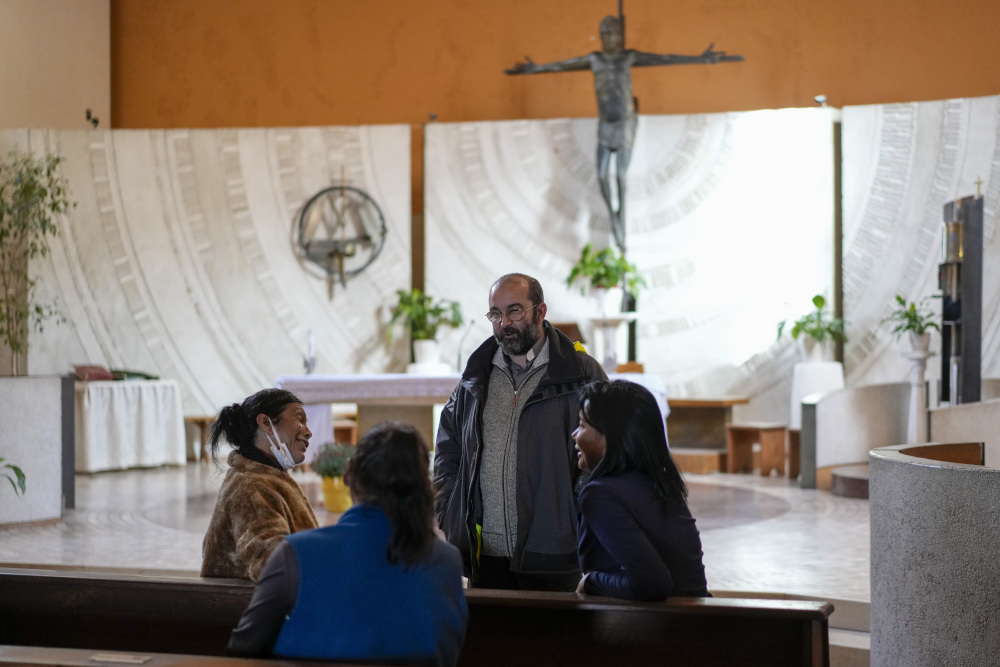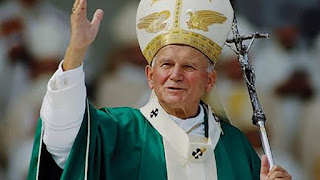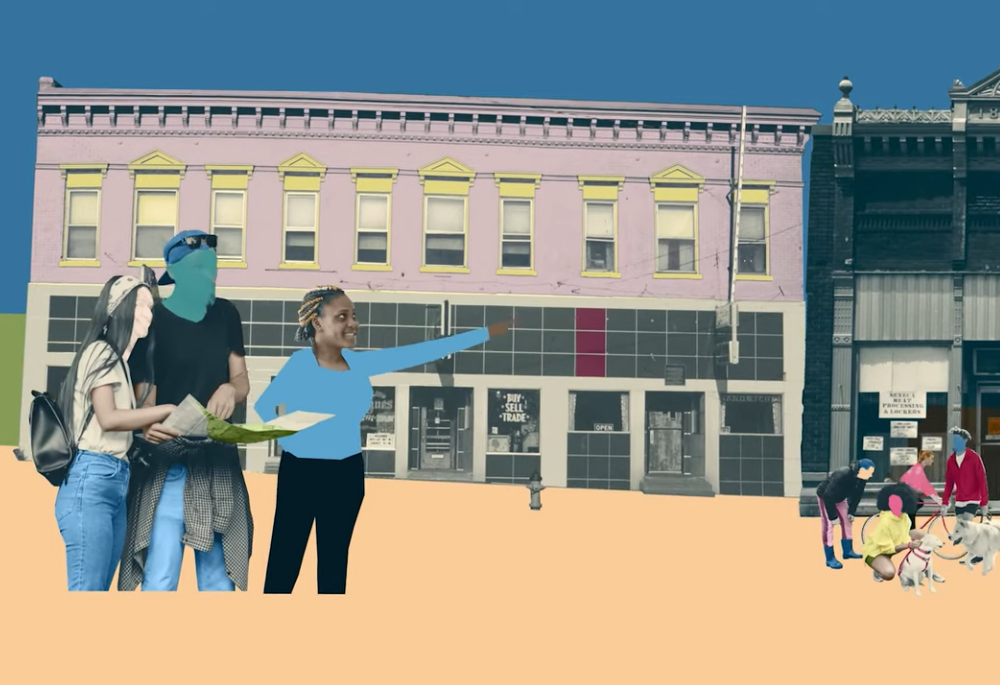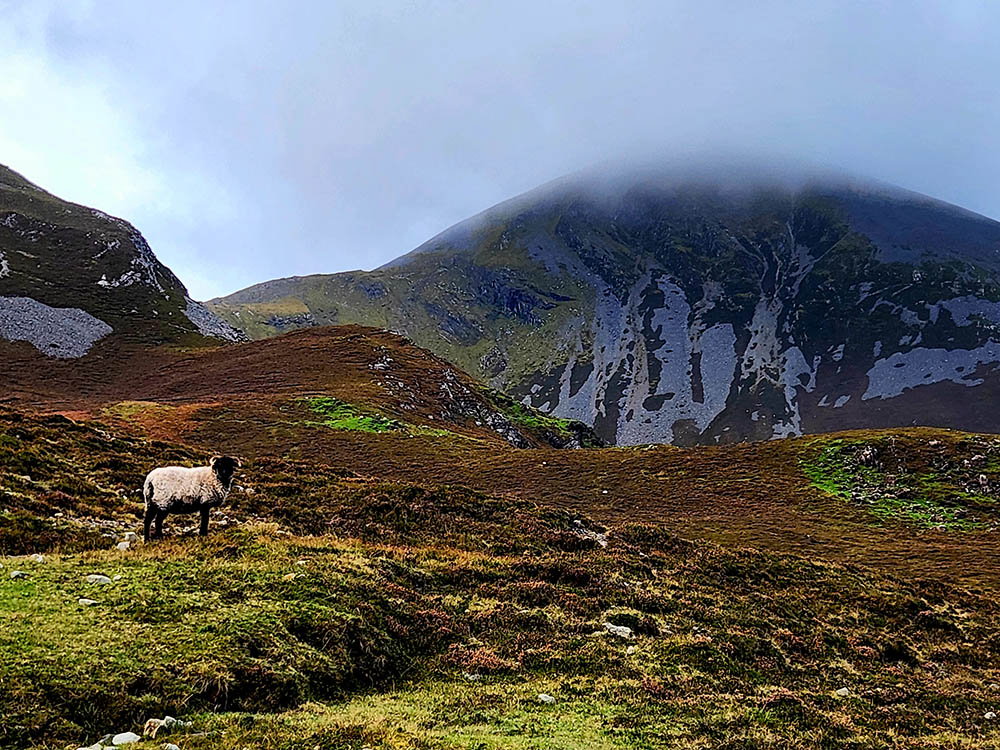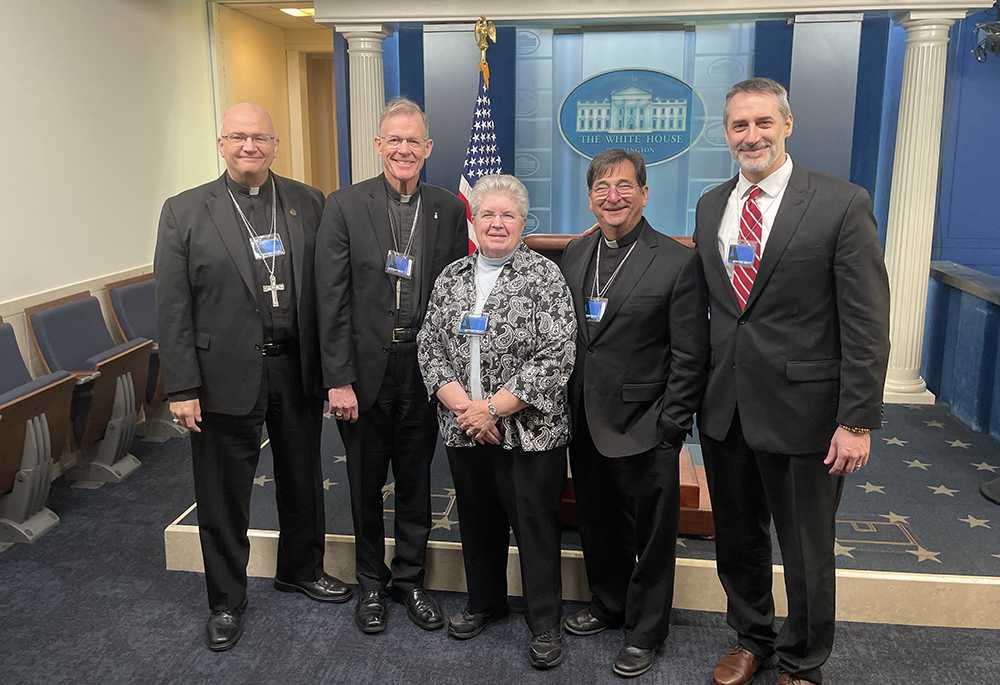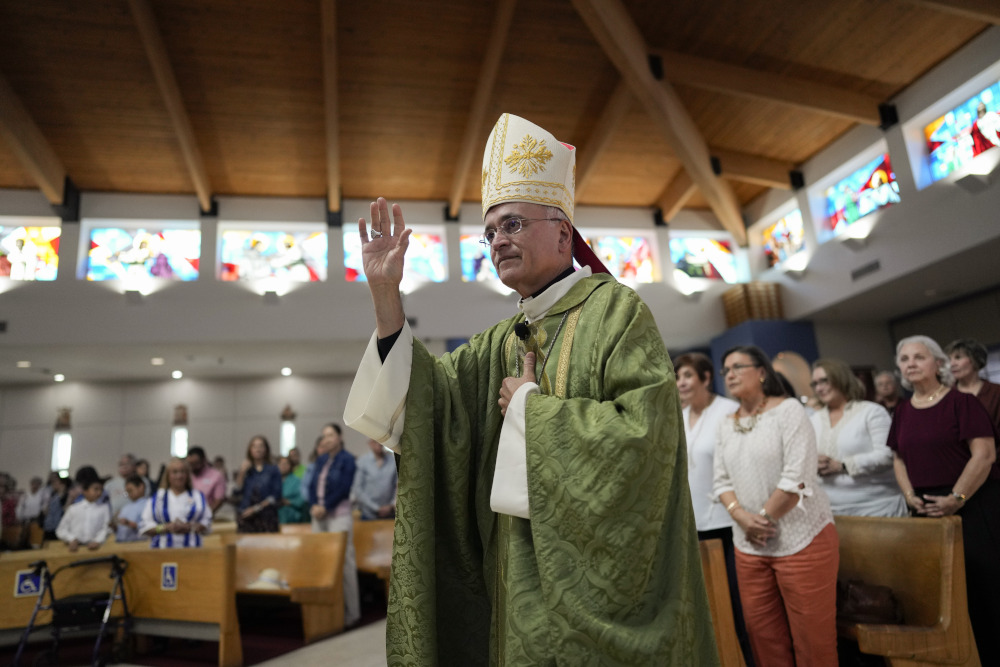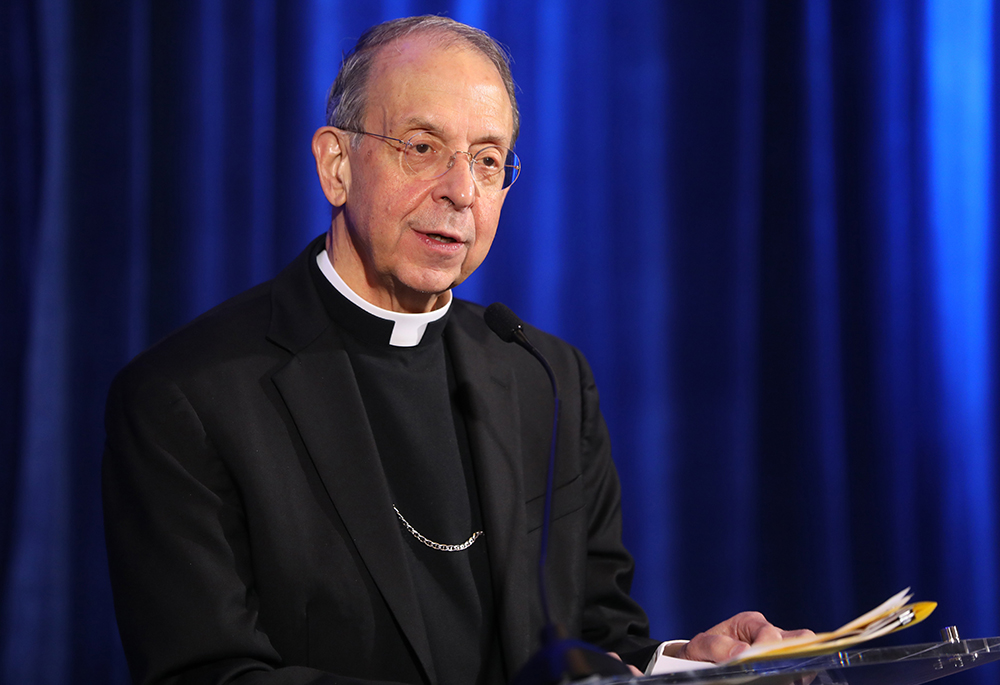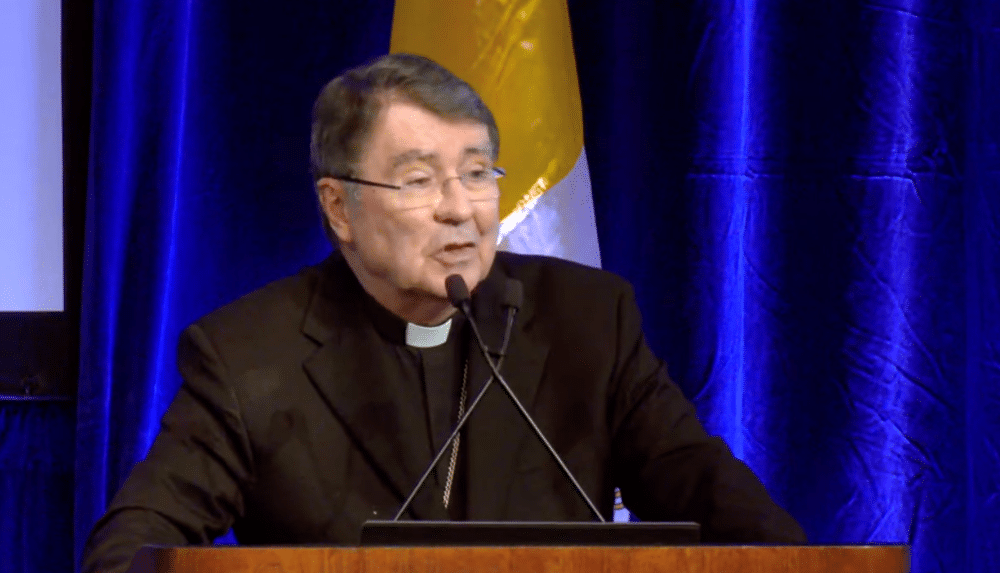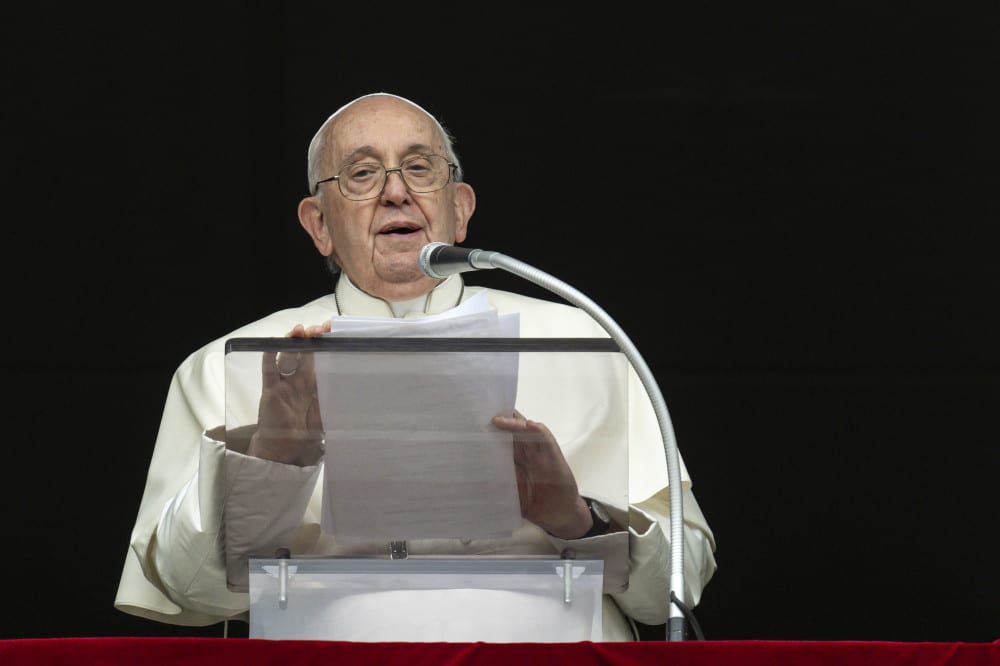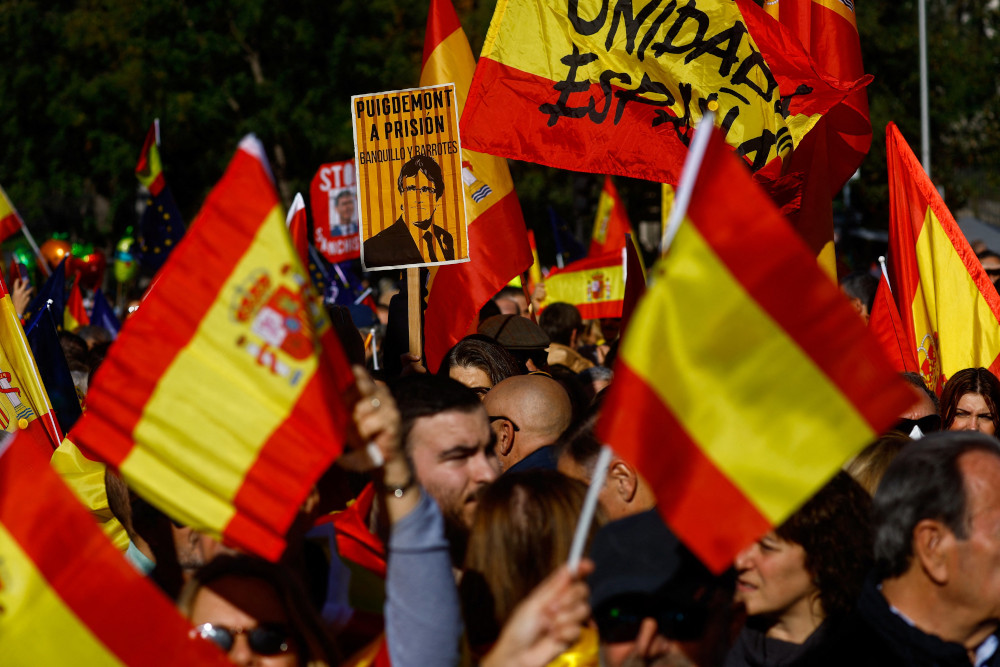
The president of the Spanish bishops’ conference has appealed for calm following mass protests against the planned release of jailed Catalan separatists under a deal with the new socialist-led government.
« I’m asking political leaders and opinion formers to do everything possible to lower the social tension — to work at all times for the general interest, » said Cardinal Juan José Omella of Barcelona.
« Any deal that modifies the status quo agreed by Spaniards under our 1978 constitution should have the consensus of all political and parliamentary forces, and support from a qualified majority of society. Otherwise, such pacts will lead only to greater division and confrontation, » he said.
The cardinal spoke Nov. 20 at the opening of the Spanish bishops’ Madrid plenary, which will confirm reparation payments for victims of clerical sex abuse.
A senior lay Catholic told OSV News the bishops were divided over the planned amnesty law for Catalan separatists and activists and predicted the protests would escalate.
« This is a highly controversial, poorly explained law, which merely shows how politicians of all stripes are more concerned with staying in power than seeking agreements, » said Jesús Bastante Liébana, chief editor of Spain’s online Catholic Religión Digital news agency.
« It’s causing deep ruptures within the Spanish church, and highlighting even deeper differences over the church’s current role, » he said.
The amnesty law was agreed in early November by socialist Prime Minister Pedro Sanchez in return for support from Together for Catalonia party and Republican Left for his new government.
It will free up hundreds of separatists and law enforcers jailed after an October 2017 Catalan referendum on independence was ruled illegal by the Constitutional Court, sparking prolonged violence.
However, 70% of Spaniards, including a majority of Socialist Party voters, opposed the amnesty in a September opinion poll, while police, judicial groups and civil and business associations have warned it could fuel new independence demands.
The move was dismissed as « shameful and humiliating » by Spain’s conservative opposition Partido Popular, whose leader, Alberto Núñez Feijóo, attended a 170,000-strong Madrid rally Nov. 18 alongside the head of Spain’s far-right Vox party, Santiago Abascal.
Catholic bishops from Catalonia, who belong to a regional Tarraconense Episcopal Conference, have not commented officially on the amnesty.
However, Bishop José Ignacio Munilla of Orihuela-Alicante told his diocese’s Catholic Radio María it would be « immoral » if « some politicians amnestied others who committed crimes in exchange for their votes, » while Archbishop Jesús Sanz Montes of Oviedo told the ABC daily the amnesty represented « a calculated amnesia, with harmful consequences for Spain. »
Sanchez was sworn in for a new four-year term Nov. 16 by King Felipe VI after securing a narrow majority of 179 votes in Spain’s 350-seat lower house four months after an inconclusive election.
The socialist prime minister, in power since 2018, declined to take his inaugural oath on the Bible, and defended the amnesty law in a Nov. 17 parliamentary address.
However, the event was marked by fresh street protests, during which right-wing Catholic groups prayed the rosary and waved national flags.
Although 53.7% of Spanish citizens still identify as Catholics, according to 2023 data, vocations and Mass attendance have dropped sharply across the church’s 70 dioceses and 23,000 parishes, while church leaders clashed with Sanchez’s previous socialist-led government over laws liberalizing abortion, euthanasia and gender recognition, and restricting religious education.
The bishops’ Nov. 20-24 plenary, attended by the Vatican’s Madrid-based nuncio to Spain, Archbishop Bernardito Auza, is expected to agree compensation payments for clerical abuse victims, in line with recommendations in a parliament-commissioned report by Spain’s human rights ombudsman, published Oct. 27.
It also will hear the executive summary of a separate abuse survey commissioned by the bishops’ conference from a Madrid law firm, to be published Dec. 14.
In his Nov. 20 address, Omella said the church was working with civil authorities to bring abuse perpetrators to justice, but also was « intensely disappointed » by « intentional, erroneous and malicious » media extrapolations about an « exorbitant number » of victims.
On current tensions, the bishops’ conference president said political deals without public acceptance risked « fragmenting coexistence » and should « respect legal mechanisms » while « seeking the common good. »
However, Liébana told OSV News conflict looked set to worsen over the proposed amnesty, the largest since democracy was restored after the four-decades dictatorship of General Francisco Franco (1892-1975).
« The bishops should strongly condemn the violence and give voice to the tension — but I fear they’ll merely stress criticism of the amnesty while offering no real proposals, » the Religión Digital chief editor said.
The pope has summoned all Spanish bishops to a Vatican meeting Nov. 28 to discuss an early 2023 papal visitation report on their church, and told a Nov. 18 Catholic congress in Madrid he counted on Spanish society to uphold « respect for the dignity and rights of people, the search for the common good, coexistence, solidarity and peace. »
